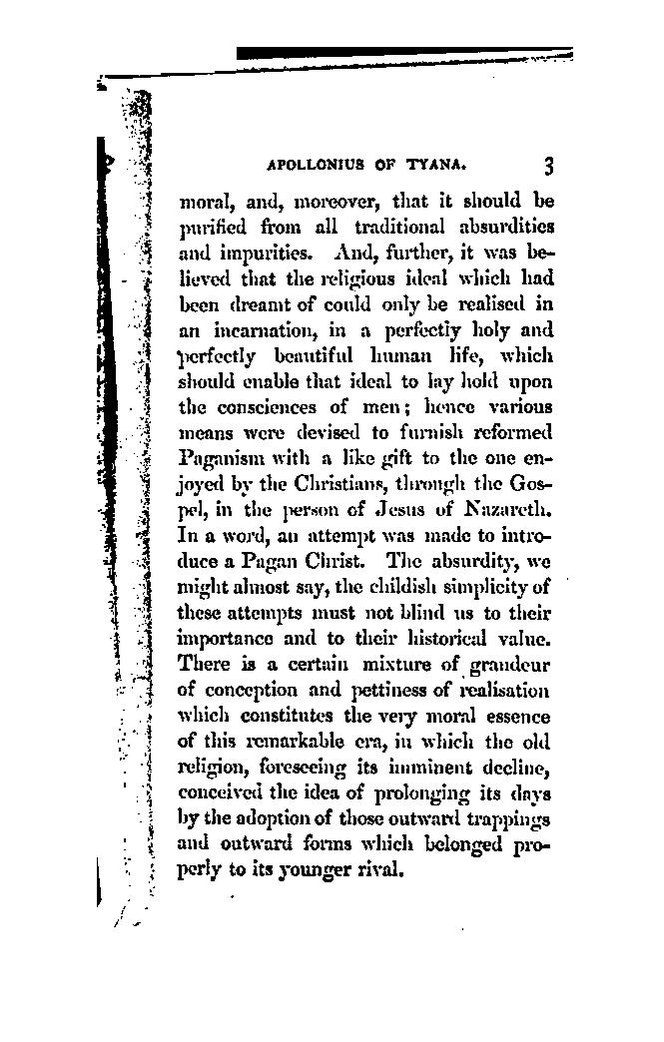moral, and, moreover, that it should be purified from all traditional absurdities and impurities. And, further, it was believed that the religious ideal which had been dreamt of could only be realised in an incarnation, in a perfectly holy and perfectly beautiful human life, which should enable that ideal to lay hold upon the consciences of men; hence various means were devised to furnish reformed Paganism with a like gift to the one enjoyed by the Christians, through the Gospel, in the person of Jesus of Nazareth. In a word, an attempt was made to introduce a Pagan Christ. The absurdity, we might almost say, the childish simplicity of these attempts must not blind us to their importance and to their historical value. There is a. certain mixture of grandeur of conception and pettiness of realisation which constitutes the very moral essence of this remarkable era, in which the old religion, foreseeing its imminent decline, conceived the idea of prolonging its days by the adoption of those outward trappings and outward forms which belonged properly to its younger rival.
